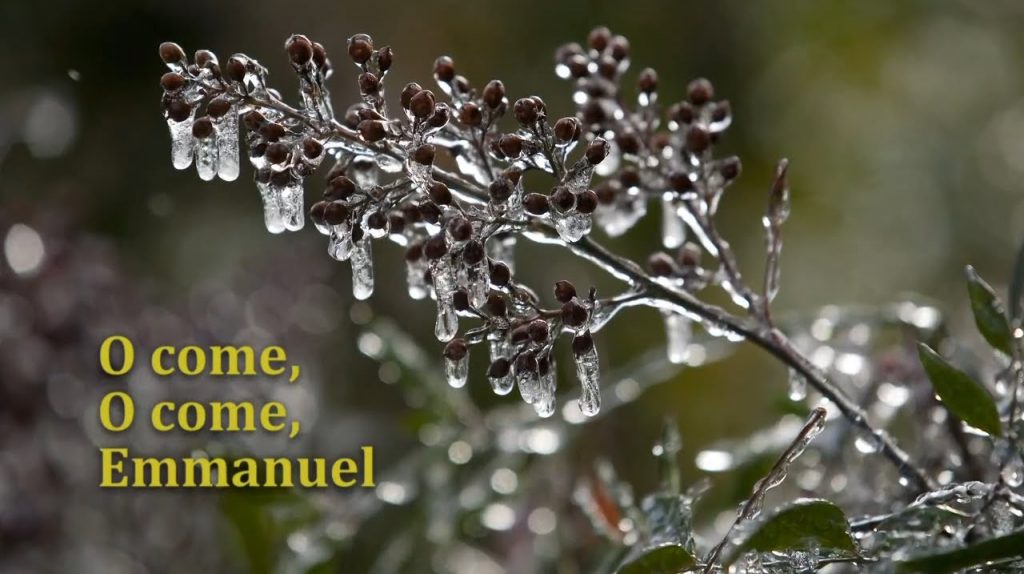
Father Gregory Boyle directs Homeboy Industries in Los Angeles, arguably the world’s most successful ministry to the members of inner city gangs.
He is inundated by opportunities to speak around the country. It’s no surprise that he sometimes falls back on the same compelling stories.
A few summers ago, Boyle was asked to present the keynote for a gathering of foster grandparents in southern California. He had spoken at the same event the previous summer, and many of the same attendees were in the audience.
After his presentation, a grandmother approached him. Her eyes filled with tears. She grabbed both of Boyle’s hands and said, with great emotion, “I heard you last year. It never gets better!” Boyle cherishes the hope that she was actually expressing her appreciation.
On this first Monday of Advent, what we know for sure is that Christmas never gets better.
It’s time to sing the same songs, renew our favorite traditions, and plunge once again into those oh-so-familiar biblical accounts of the birth of Jesus.
We run the risk, of course, of repeating ourselves. But that’s OK. Even though we’ve spotlighted Christmas carols before, let’s do it again. Between now and Christmas Eve, each morning reflection will either tackle the deep background of one of the old favorites, or examine a timeless spiritual song for the first time.
What exactly is a Christmas carol?
The word “carol” appears to come from the Greek word choros, which means “dance.” We see that in the word “choreography.” It might be simplest to say that Christmas carols prompt the dancing of human hearts. They convey spiritual insights about the story of Jesus’ birth that are both joyous and easy to sing.
If there’s such a thing as the first carol that ought to be sung every year as Christmas approaches, it’s O Come, O Come Emmanuel – first in terms of the story it tells (“one day the Messiah will come”) and first in terms of its antiquity.
More than a thousand years ago, monks did not commonly read music. They learned to sing “plainsongs,” simple melodies passed on from generation to generation.
This carol’s melody, which is in a minor key, is particularly haunting. The words were originally translated from twelfth century Latin verses. It’s impossible to say how many different hands might have contributed to the words and music over the centuries. The original composer(s) will probably never be known:
O come, O come Emmanuel, and ransom captive Israel
That mourns in lonely exile here, until the Son of God appear.
(chorus) Rejoice! Rejoice! Emmanuel shall come to thee, O Israel!
O come Thou Dayspring, come and cheer our spirits by Thine advent here,
Disperse the gloomy clouds of night, and death’s dark shadows put to flight.
O come, Desire of Nations bind all peoples in one heart and mind;
Bid envy, strife and quarrels cease, fill all the world with heaven’s peace.
Here’s a soulful rendition by the Piano Guys, two musicians from St. George, Utah, who in 2011 began to craft videos as a way to promote a friend’s retail piano store. Jon Schmidt, the pianist, and Steven Sharp Nelson, on the cello, capture this carol’s inherent sadness and yearning – Lord, when are you ever going to come to set things right in this messed-up world?
Who is this Emmanuel?
According to Matthew 1:23, Jesus would bear that title. It means “God With Us.”
Every time we turn toward Jesus we discover in fresh and powerful ways that God is always alongside us.
God is with you in your marriage that is full of pain. God is with you in chemotherapy. God is with you as you scramble to find enough money to keep your small business afloat.
God is with you in your isolation during this pandemic surge. God is with you when a family member says, “I don’t want to be in this family with you any longer.”
There is no event, no appointment, no circumstance in which Jesus will ever fail to live up to the name that he has been given for eternity.
He is Emmanuel.
Rejoice!
